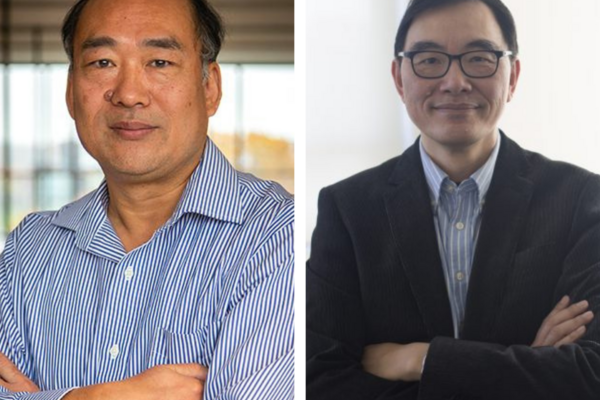
How long have you taught SOC393Y0? Could you briefly describe your course?
Professor Tsang: I started teaching this course in 2016. China represents a complex reality that impacts all of us and this course offers a set of conceptual tools for students to engage meaningfully with it. A central theme is how this reality relates to the lived experience of students.
In my lectures, I will address the following topics:
(1) Chinese Culture Reconsidered : Scholars in the west have traditionally focused on Confucianism, Daoism, and Buddhism as key foundations of Chinese culture. This lecture addresses the risk of archaicism/classicism and integrates contemporary developments (e.g., the communism, Cultural Revolution, global exposure, nationalism, market economy, etc.).
(2) Sexuality, Intimacy and Relationships: Exploration of this significant aspect of human life reveals the dynamic interplay of economic, social, political, and cultural forces.
(3) Social Problems and Social Service: Understanding of a society will not be complete without considering the problems and challenges it engages with. Exploring possible solutions through a social work lens may deepen our understanding of how problems are construed and managed.
(4) Globalization and the Rise of China: The rise of China potentially impacts everyone in a globalized environment. Recent developments both within the country and in terms of its international relations raise challenging issues to be addressed.
Professor Zhang: I have taught this course together with Professor Tat Tsang since 2016. I teach this course because it offers an opportunity for students to understand China not only from attending lectures, but know China by seeing Chinese societies through their own eyes. This course focuses on contemporary Chinese societies with historical backgrounds, and discusses various important issues ranging from its population, ethnicity, internal migration, stratification and inequality in education, health, employment and gender, family organization and family formulation, social network, poverty, social welfare, sexuality and intimacy, to China’s future role in the new global context.
How does this course differ from a regular on-campus course? What’s your favorite part of the course?
Professor Tsang: The summer abroad program offers an opportunity for students to practically live together for a month in a shared environment. The activities they can choose to pursue outside of class time can prove to be invaluable both in terms of learning and building personal connections. Immersion in a different milieu both physically and socially represents an intensive experiential learning process, which has been found extra valuable by students in past years.
The possibility of close and intense interaction between students and instructors enriches the educational experience for the students, while at the same time gives immediate and valuable feedback to the instructor. The intellectual stimulation is complemented by ample opportunity to explore common interests as well as diverse views. Many students have found the experience to be both intellectually and personally rewarding. I have asked students to keep a reflective journal through the first three weeks of their program in order to explore the connection between social science analysis and their personal experience.
At the end of the course, I will conduct a self-exploration workshop and integrative seminar for students to reflect on how this course relates to their personal life and future career development.
Professor Zhang: This course differs from a regular on-campus course in many significant ways. For example, because professors and students travel together to Beijing and Tianjin, it provides an opportunity for students and professors to have intensive interactions on a daily basis, which enhances learning within and beyond regular lecture hours. The students are also exposed to guest lectures from local institutions (e.g., Chinese Academy of Social Sciences, Peking University), and local informants including woman activists and villagers alike. Our students have the chance to interact with local students to discuss matters of mutual interests, including issues such as education, and love and sexuality. The experiential elements of teaching and learning are my favourite part of the course.
Your course will be offered virtually this summer, what interactive ways will students experience the course material?
Professor Tsang: Whereas virtual delivery of this course inevitably impacts the nature and quality of interaction among instructors and students, it also opens up new venues of learning and experiencing. We encourage students to maximize their out of class contacts during the program period and to share life as much as they can through social media (and in-person contact when it is clearly safe to do so). Real time (synchronous) live events and activities can be organized (e.g., virtual visits, gatherings, shows, informal chats, games, creative and/or expressive arts, etc.). I will also employ SALT (searching and learning together) exercises both in class and outside to facilitate collaboration and experience sharing.
I will make myself available to talk to students one-on-one or in small groups to explore issues and topics that are of interest to them. Everyday life (having meals together, walking from one place to another, casual chat over coffee, shopping, etc.) is an integral aspect of the in-person summer abroad experience; and I believe many aspects of that can still be shared virtually.
Professor Zhang: Teaching and learning online will certainly be a challenge. I would like to experiment with online interviews of local informants, as we did in-person interviews in the previous years. Also, I hope informants or our own students will be able to livestream briefly a local scene like market, street, school, park, or other public space so we can discuss what we observe in regards to sociologically significant issues. We may arrange on-site students to conduct and livestream interviews, and the interviewee could also answer online questions.
